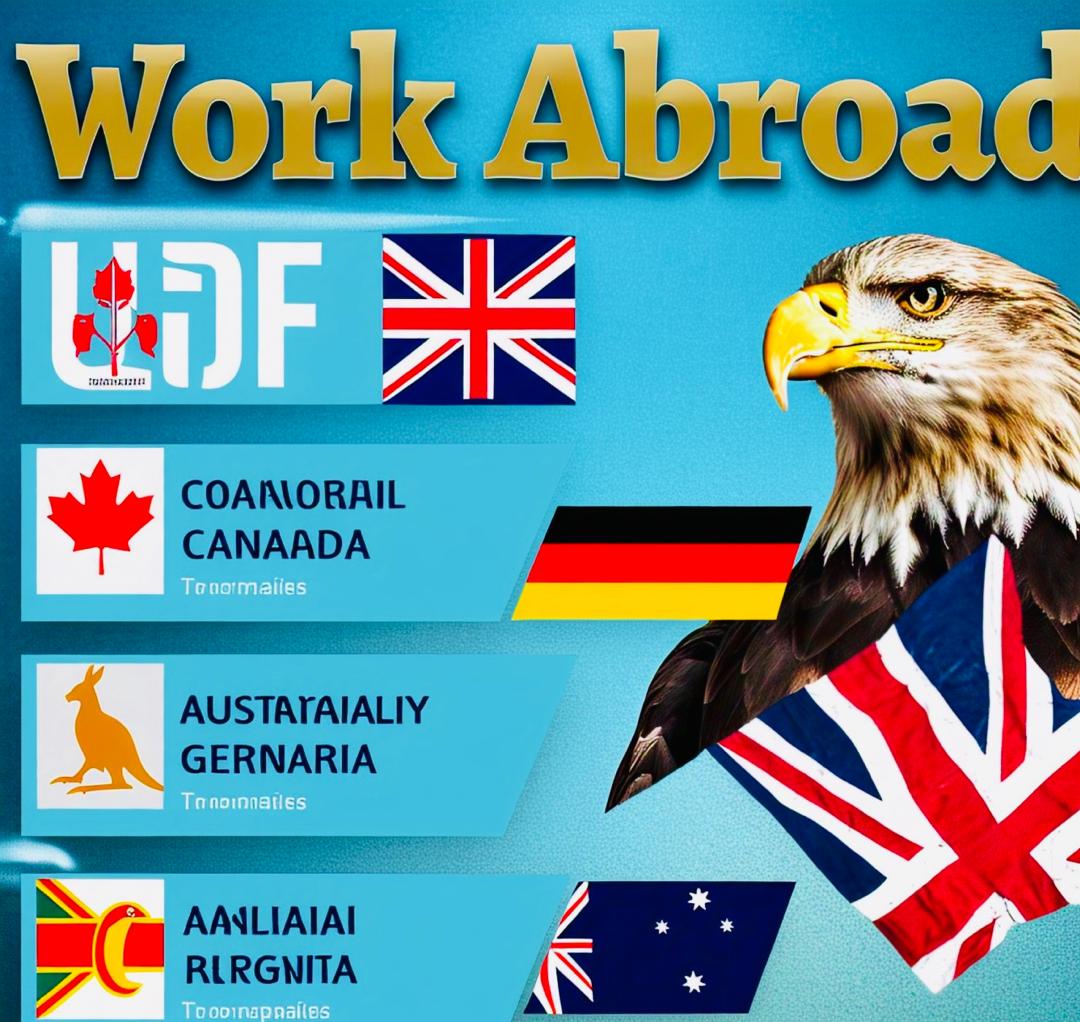Canada’s population is increasing, and caregivers are in short supply. In response, the government established the caregiving Program, which sponsors foreign workers for in-demand caregiving positions. If you are passionate about caring for and assisting others, caregiver positions may be an ideal method for immigrants to establish themselves in Canada through employer sponsorship. This article provides a complete summary of Care jobs in Canada with free visa sponsorship you can secure from Nigeria.
Careers in caregiving are worth significant consideration for foreign nationals seeking possibilities in Canada due to the job prospects, the likelihood of obtaining employer sponsorship, and the ability to obtain Canadian residency.
Types of Caregiver Jobs Available in Canada
There are various types of caregiver jobs accessible in Canada. Depending on your abilities and interests, you can work as
- Home Support Worker: This position entails providing care and help to the elderly or those recovering from illnesses. You’ll help with daily tasks like bathing, feeding, and administering medication.
- Child caretaker (Nanny): If you enjoy working with children, consider becoming a child caretaker. Your primary responsibilities here would be to supervise, care for, and assist youngsters with their education, daily routines, and other personal needs.
- Live-in Caregiver: In this capacity, you will provide 24-hour support by living with the individual or family you are caring for and assisting with everyday needs and personal care, as well as offering medical aid in some circumstances.
- Disability Support Worker or Personal Support Worker (PSW): A PSW assists individuals with disabilities. This may necessitate working in private homes, assisted living facilities, or healthcare settings.
In-demand Caregiver Positions in Canada with Visa Sponsorship
- Assisting with personal care such as bathroom functions, bathing, grooming, clothing, and feeding.
- Following a predetermined healthcare plan, which may include assistance with exercise and giving medication.
- Ensure that the client’s home is structured according to their needs and that appropriate safety precautions are in place. You may also be asked to help with some minor chores.
- Offering emotional support and encouragement to complete important activities.
- Mobility assistance may be necessary, such as assisting the client into and out of bed, a chair, or a wheelchair.
- Taking or accompanying the client to medical and other appointments.
- Changes in health, behavior, and requirements should be monitored and reported.
The Regions in Canada with the Highest Payment Structures.
- British Columbia: Caregivers in British Columbia make an average of $22-$28 per hour, depending on their work seniority. Employers include healthcare facilities, private agencies, and individual customers.
- Ontario: Wages in Ontario range from $21 to $27 per hour for PSWs, home support workers, and caregivers in private homes or senior homes.
- Alberta: Caregivers start at $19-$23 per hour, with greater wages in Edmonton and Calgary. There are many jobs available at continuing care facilities.
- Quebec: Salaries in Quebec average between $19 and $22 per hour. Many positions are available around the province through the public health system and private senior living facilities known as CHSLDs.
- Nova Scotia: As the second-oldest province, demand is increasing. Long-term care and home care services offer competitive pay of $18-$24 per hour, as well as comprehensive benefits.
Pay Scale for Immigrants
The table below outlines typical hourly salaries in Canadian dollars ($) for immigrant caregivers based on role and experience level. Salaries vary slightly across provinces but average between 18 and 28 dollars per hour.
- Role Entry Level (less than 1 yr) Experienced (2-5 yrs) Lead/Supervisor
- Home Support Worker $18-21 $19-23 $22-25
- Personal Support Worker $18-21 $20-24 $23-27
- Continuing Care Assistant $19-22 $21-24 $23-26
- Senior Homemaker $19-21 $21-23 $22-25
With expertise, specialties such as dementia care or palliative care can earn $1-2 per hour more. Full-time employment includes perks such as extended health insurance, dental coverage, and paid vacation/sick days, which greatly increase overall compensation packages.
Requirements to be eligible for caregiver jobs in Canada
Before applying for a caregiver position in Canada, there are a few requirements to check off. You must meet all of these eligibility requirements:
- Relevant Experience: It is not enough to have cared for your elderly parents or siblings. While this is a good start, you will need to demonstrate at least one year of experience working in a hospital, aged home, or as a volunteer. Some jobs may even require formal schooling or training in healthcare or caregiving.
- Language Skills: Because English and French are the languages spoken in Canada, you must be fluent in both to interact with employers and those you will be caring for. However, the Canadian Language Benchmarks (CLB) require only a level 4 proficiency, making it easier.
- Educational Background: A high school diploma is the minimal educational requirement to apply for caregiver jobs in Canada, equivalent to a West African Senior School Certificate (WAEC) or National Examinations Council (NECO) degree in Nigeria.
- Canadian Job Offer: To be eligible for this position, you must first acquire a full-time job offer from a Canadian care home.
These are the four essential requirements to be eligible for caregiver jobs in Canada, but you also need to be fit for the role.
- Clean Police Record
- Adequate Finance and
- Medical Examination
How to Find and Apply for Caregiver Jobs in Canada with Visa Sponsorship as a Foreigner
Here’s a step-by-step guide to finding and applying for caregiver employment in Canada with visa sponsorship as a foreigner.
Step 1: Research the Requirements for Caregiver Jobs in Canada.
Before applying, you should understand the qualifying criteria and employment requirements for caregivers in Canada. This involves verifying that you fulfill the required qualifications, work experience, and language competency norms.
You’ll need a high school diploma or equivalent, as well as caregiving training or certification.
Also, make sure you have at least 1-2 years of caregiving experience and can demonstrate proficiency in English or French, depending on the province.
Step 2: Research Caregiver Programs and Visa Options
Familiarize yourself with caregiver programs in Canada, such as the Home Child Care Provider Pilot and the Home Support Workers Pilot. These programs have unique qualifications and application procedures.
Additionally, look into the many visa alternatives for caretakers, such as the Temporary Foreign Worker Program (TFWP) and the International Mobility Program (IMP).
Step 3: Prepare your documents.
Collect all of the relevant paperwork to support your caregiver employment application. These comprise your school credentials, job experience certificates, language test results (such as IELTS or TEF), police clearance certificates, medical examination results, and a current passport.
Step 4: Look for Caregiver Job Opportunities.
Search for caregiving job postings on reputable job boards, company websites, and Canadian immigration websites that provide visa sponsorship.
Some useful platforms include:
- Job Bank Canada (official government website)
- Indeed Canada
- Care.com
- Workopolis
You might look for websites for employment organizations that specialize in caregiver placements, as many of them offer visa sponsorship to foreign workers. Look for jobs that match your qualifications and experience.
Step 5: Apply for Caregiver jobs.
Send your CV, cover letter, and other needed documents to employers who are offering caregiver jobs with visa sponsorship. Make sure your application is thorough and follows the instructions in the job ad.
Your cover letter should be tailored to each job application, highlighting why you are a good fit for the position and your desire to relocate to Canada. Tailor your application to the unique job needs, emphasizing your relevant abilities and experiences.
Step 6: Prepare for Interviews
If your application is successful, you will most likely be invited for an interview. Employers will want to know about your caring skills and capacity to adjust to living in Canada.
Prepare by studying the company and the caregiver position. Practice answering common interview questions about your caregiving experience, motivation for moving to Canada, and ability to adapt to new surroundings.
Step 7: Secure the job offer and visa sponsorship.
When you obtain a job offer, your business will start the visa sponsorship procedure through the Temporary Foreign Worker Program (TFWP) or the Home Child Care Provider/Home Support Worker Pilot.
Your employer may need to get a positive Labour Market Impact Assessment (LMIA) from Employment and Social Development Canada (ESDC) to demonstrate that no Canadian citizen or permanent resident can fill the caregiving role.
However, in some situations, such as the International Mobility Program (IMP), an LMIA exemption may be applicable.
Step 8: Apply for a work permit and visa.
After your employer has received a positive LMIA or LMIA exemption, you can apply for a work permit and visa at the nearest Canadian embassy, consulate, or visa application center in your country.
Gather and submit all relevant documents, such as a passport, employment offer, LMIA, and evidence of qualifications; pay the applicable costs; and attend a visa interview if necessary.
Your employer will make an offer to Immigration, Refugees, and Citizenship Canada (IRCC) to sponsor your work visa. The procedure may take some time, so stay in touch with your employer and IRCC to ensure that your application is moving forward smoothly.
Step 9: Prepare for your move to Canada.
Once your visa has been approved, begin preparing for your move to Canada. This entails acquiring housing, arranging transportation, and becoming acquainted with Canadian culture and caregiving expectations.
Your company may be able to help you with some of these things as part of the visa sponsorship procedure.
Prepare for the adjustment by interacting with online groups of foreign caregivers in Canada, and consider attending a cultural orientation course if one is offered.
Step 10: Begin Your Caregiver Role in Canada
Once you arrive in Canada, you will start working for your employer. Follow all local requirements for caregivers and keep your visa status up to date.
Take advantage of possibilities for additional training or certification if necessary to advance your career in Canada.
Top Home Care Services Offering Caregiver Jobs in Canada With Visa Sponsorship
Here are the best home care services that provide caregiver jobs in Canada with visa sponsorship, along with links to their job pages.
● Bayshore HealthCare
Bayshore HealthCare is one of Canada’s leading providers of home and community care services. They provide a wide range of services, including home care and palliative care.
They sponsor visas for eligible foreign caregivers through Canada’s immigration programs, which include the Temporary Foreign Worker Program (TFWP), Home Child Care Provider Pilot, and Home Support Worker Pilot.
Experience in home care, fluency in English or French, and necessary certifications such as CPR and first aid are commonly required.
Link to Apply: https://jobs.bayshore.ca/
● Comfort Keepers
Comfort Keepers is a top supplier of in-home care for the elderly in Canada. They provide a variety of caring services, including personal care, companionship, and light cleaning.
They engage foreign caregivers through visa sponsorship schemes, particularly for elderly care and home support services.
Applicants must possess a high school graduation, caregiving experience, and CPR/first aid certification. Language competence and a clear criminal background are also essential.
Apply online at https://www.comfortkeepers.jobs/.
● Home Instead
This is a well-known provider of senior care services, including companionship, personal care, and housekeeping.
They routinely engage foreign caregivers and provide visa sponsorship via the Temporary Foreign Worker Program (TFWP) and caregiver-specific pilot initiatives.
Candidates should have at least 1-2 years of caregiving experience, applicable certifications (such as CPR), and fluency in either English or French. Applicants may have to go through a background check and a medical screening.
Apply here: https://www.homeinstead.ca/home-care-jobs/.
● CanadianNanny.ca
CanadianNanny.ca is an online platform that links nannies and caregivers with families across Canada. Many families on the platform are eager to sponsor work permits for foreign caregivers.
This caregiver service platform provides jobs where employers explicitly want to hire international caregivers and provide visa sponsorship.
Most employers want at least 1-2 years of caregiving experience and may prefer extra qualifications like CPR or first aid. Language competence and a valid passport are required.
Link to Apply: https://canadiannanny.ca/nanny-jobs/canada
● We Care Home Health Services
Right at Home Canada is a home care provider that offers specialized care to seniors and people with disabilities. They have franchises throughout Canada and provide a supportive work environment for caregivers.
They provide visa sponsorship to eligible foreign caregivers through the TFWP and caregiver-specific pilot initiatives.
Candidates should have relevant caregiving experience, be kind and compassionate, and meet the Canadian government’s visa sponsorship standards.
Link to Apply: https://www.rightathomecanada.com/jobs
Conclusion
Care jobs in Canada with free visa sponsorship you can secure from Nigeria provide a life-changing chance for Africans seeking to work overseas and improve their future. You can realize your dream of working as a caregiver in Canada by learning about the requirements, utilizing online resources, and following the visa sponsorship process. Furthermore, the prospect of obtaining permanent residency makes this professional path even more appealing.
Take the first step today by researching career opportunities, creating an application, and practicing your caring abilities. With effort, persistence, and the appropriate approach, you may start a successful career in Canada and build a better future for yourself and your loved ones.






